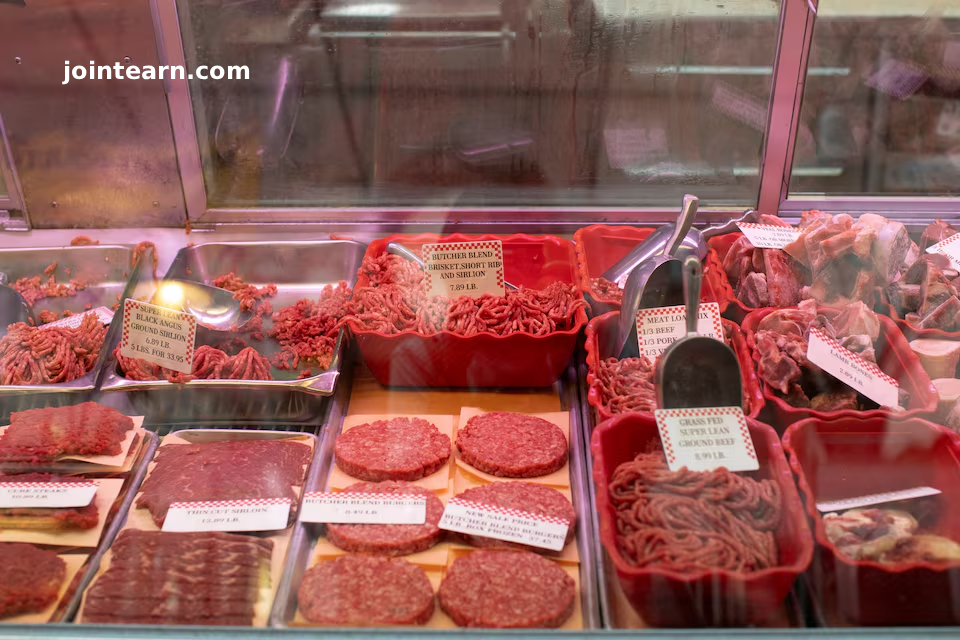
In a significant policy shift, U.S. President Donald Trump announced on Friday a rollback of tariffs on over 200 food products, including popular staples such as coffee, beef, bananas, tomatoes, and orange juice. The move comes amid growing concerns among American consumers over the rising cost of groceries and household goods.
The tariff exemptions, which took effect retroactively at midnight Thursday, represent a major reversal for Trump, who has previously insisted that the tariffs imposed earlier this year are not driving inflation. Speaking aboard Air Force One, Trump acknowledged that tariffs “may in some cases” raise prices but maintained that overall, the U.S. experiences “virtually no inflation.”
Focus on Food Affordability and Trade Deals
This latest action is part of the Trump administration’s broader effort to address affordability for American families while advancing bilateral trade agreements. Framework trade deals with Argentina, Ecuador, Guatemala, and El Salvador are expected to eliminate tariffs on certain foods and other imports once finalized.
The tariff rollback list includes everyday grocery items that have experienced notable year-over-year price increases, such as:
- Ground beef – prices nearly 13% higher than last year
- Steaks – up almost 17%
- Bananas – approximately 7% higher
- Tomatoes – 1% increase
According to the Consumer Price Index, the overall cost of food consumed at home rose 2.7% in September, highlighting the pressure on American households. While the U.S. is a major producer of beef, a persistent shortage of cattle has contributed to the surge in prices.
Industry Reactions to Tariff Rollback
The move received a mixed response from industry stakeholders. Many welcomed the rollback, noting that it could help reduce consumer costs and ease pressures on U.S. manufacturers that rely on imported products in their supply chains. Leslie Sarasin, president of the FMI-Food Industry Association, emphasized that the rollback could make everyday staples, including coffee, more affordable for consumers.
However, some sectors, such as the distilled spirits industry, expressed disappointment at being excluded. Chris Swonger, president of the Distilled Spirits Council, noted that exclusions on imports from the European Union and Britain could negatively impact the U.S. hospitality sector during the critical holiday season.
Economic and Political Implications
The tariff rollback highlights a growing political focus on affordability, particularly as voters in states such as Virginia, New Jersey, and cities like New York City have increasingly cited high food prices as a major concern in recent elections.
Trump also indicated that tariff revenues could fund a $2,000 dividend for lower- and middle-income Americans, signaling a continued emphasis on consumer relief while reducing federal debt.
Democrats, however, criticized the administration for contributing to inflation through its trade policies. Richard Neal, top Democrat on the House Ways and Means Committee, stated, “The Trump Administration is finally admitting publicly what we’ve all known from the start: Trump’s Trade War is hiking costs on people.”
Economists warn that while the rollback may ease consumer costs in the short term, prices could rise again next year as companies begin passing on the full impact of import duties.
Trump’s Trade Strategy and Global Impact
Since assuming office, Trump has imposed a 10% base tariff on imports from every country, in addition to specific duties that vary by state. The rollback represents a tactical adjustment in response to consumer pressures and political realities, reflecting a growing focus on affordability and trade reciprocity in the administration’s economic agenda.
By targeting over 200 items—including oranges, acai berries, paprika, cocoa, fertilizers, and even communion wafers—the administration aims to balance domestic production interests with consumer price stabilization, while continuing negotiations for reciprocal trade agreements with key partners.


Leave a Reply